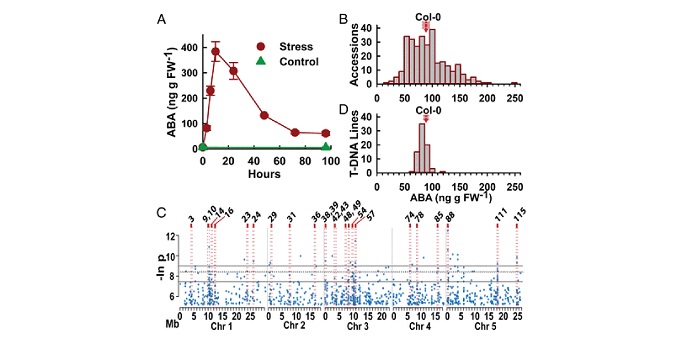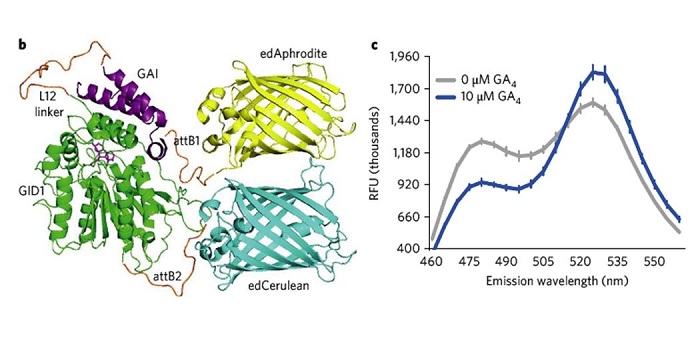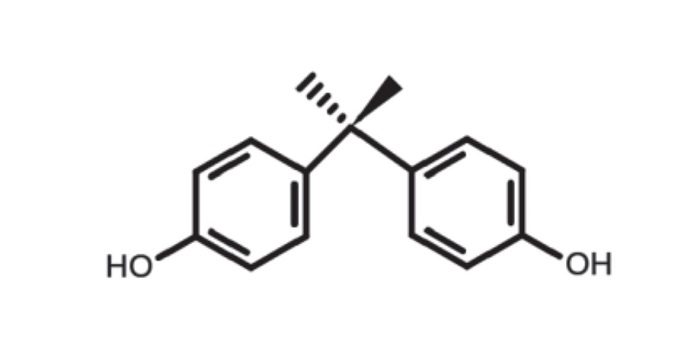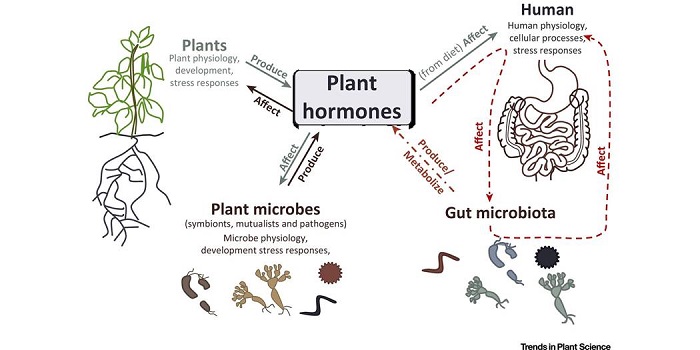
Natural variation identified genes affecting drought-induced abscisic acid accumulation in Arabidopsis thaliana ($)
Blog, Plant Science Research Weekly, Research, Research Blog
Dissecting the genetic controls of ABA is challenging, granted the complex modulation of ABA turnover and redundancy of the hormone perception machinery. In the recent study, Kalladan and colleagues explored natural variation of low-water-potential induced ABA accumulation. Using heuristic GWAS,…

In vivo gibberellin gradients visualized in rapidly elongating tissues
Blog, Plant Science Research Weekly, Research, Research BlogBiosensors can reveal cellular or even sub-cellular distributions of hormones, greatly enhancing our understanding of hormone action. Rizza et al. have developed an in vivo, FRET-based gibberellin biosensor, GIBBERELLIN PERCEPTION SENSOR 1 (GPS1), that incorporates portions of two GA-binding proteins,…

The effect of bisphenol A on growth, pigment composition and photosystem II activity of Arabidopsis thaliana
Blog, Plant Science Research Weekly, Research, Research BlogMany of the plastic consumables we have at home contain synthetic chemical BPA (Bisphenol A). In 1930, a UK scientist discovered that BPA weakly mimics the human hormone estrogen. It has also been found that tiny amount of BPA can leach out of plastic (Stanford University). Thus, there has been a heightened…

Opinion: Plant hormones: Key players in gut microbiota and human diseases?
Blog, Plant Science Research Weekly, Research, Research BlogChanclud and Lacombe have written an intriguing Opinion article asking to what extent plant hormones affect animal gut microbiota and human disease. In support of this question, they observe that many microbes and even some animals can perceive and respond to plant hormones, or produce plant-hormone…

Heterodera schachtii tyrosinase-like protein - a novel nematode effector modulating plant hormone homeostasis
Blog, Plant Science Research Weekly, Research, Research Blog0 Comments
/
The nematode Heterodera schachtii is a parasite of the sugar beet. Understanding how H. schachtii parasitizes the plant is crucial to develop tools to minimize infestation and crop losses. From the H. schachtii transcriptome, the authors identified the sequence of a putative secreted effector protein…

Review: Zooming in on plant hormone analysis: Tissue- and cell-specific approaches ($)
Plant Science Research Weekly, ResearchThroughout plant life cycle, from germination till reproduction, every event is regulated by a highly complex network of hormones. Unlike animals where hormones are synthesized in specific glands, each plant cell is able to produce hormones. However, hormones are synthesized in specific organs in plants.…

